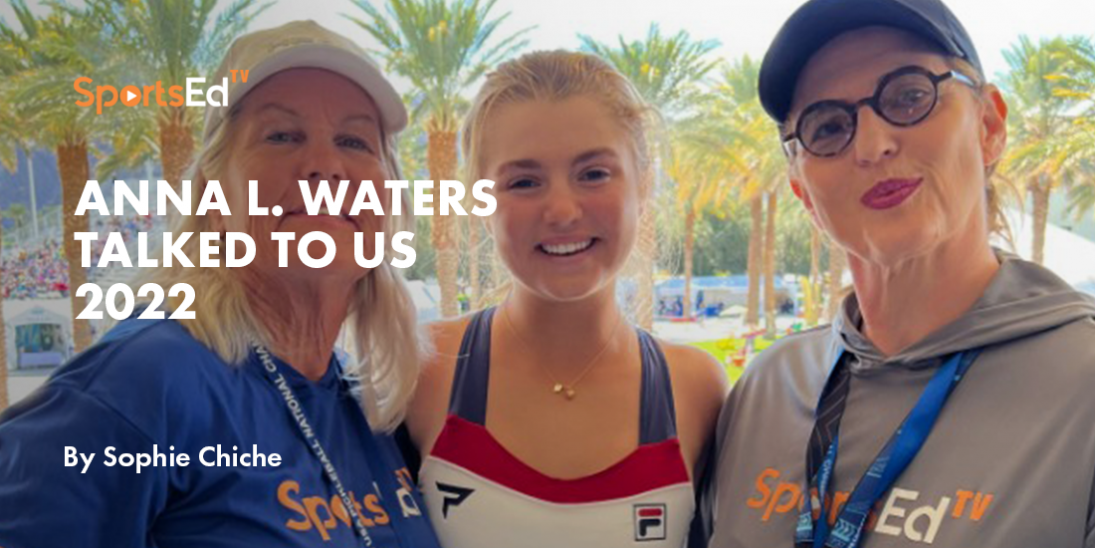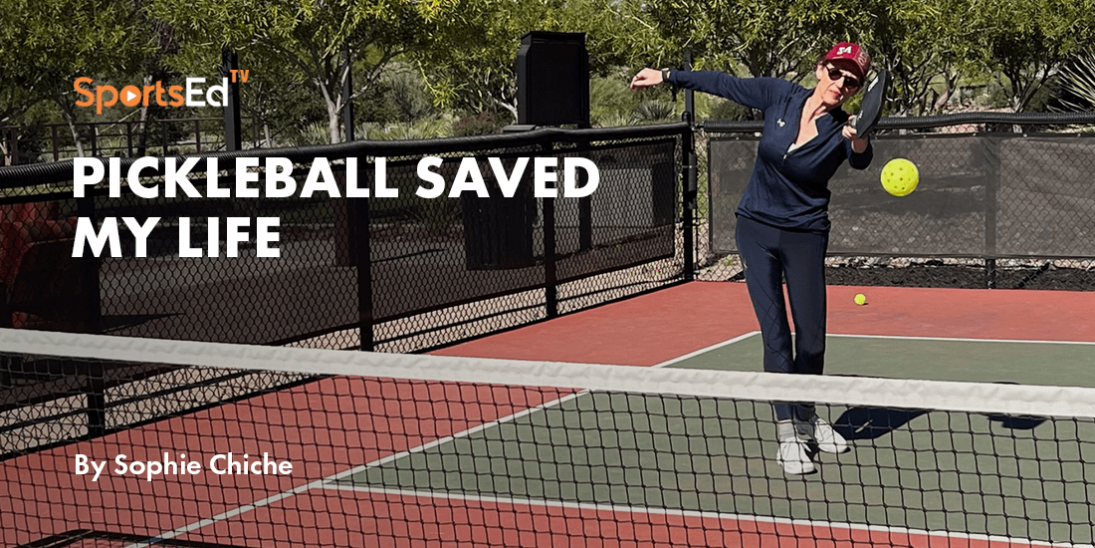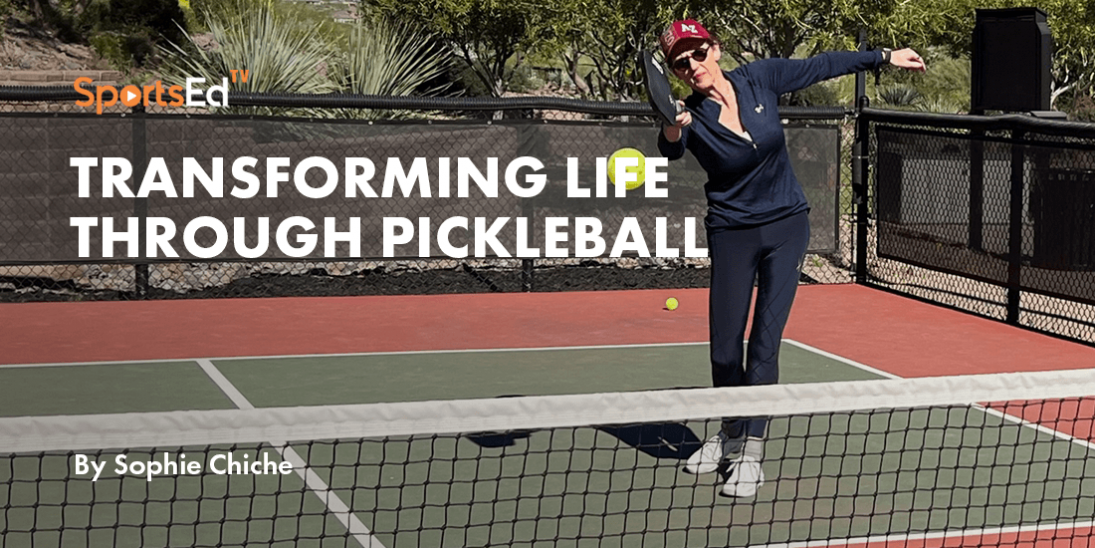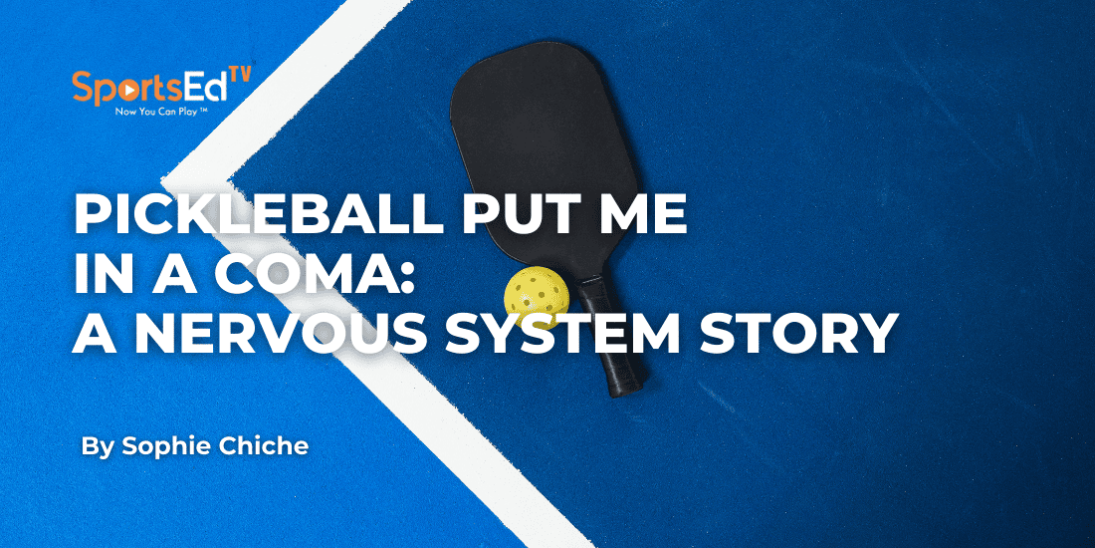Pickleball
Welcome and thanks for visiting...

Spreading Joy with Pickleball in Bhutan: A Unique Cultural Exchange and Sports Outreach Journey
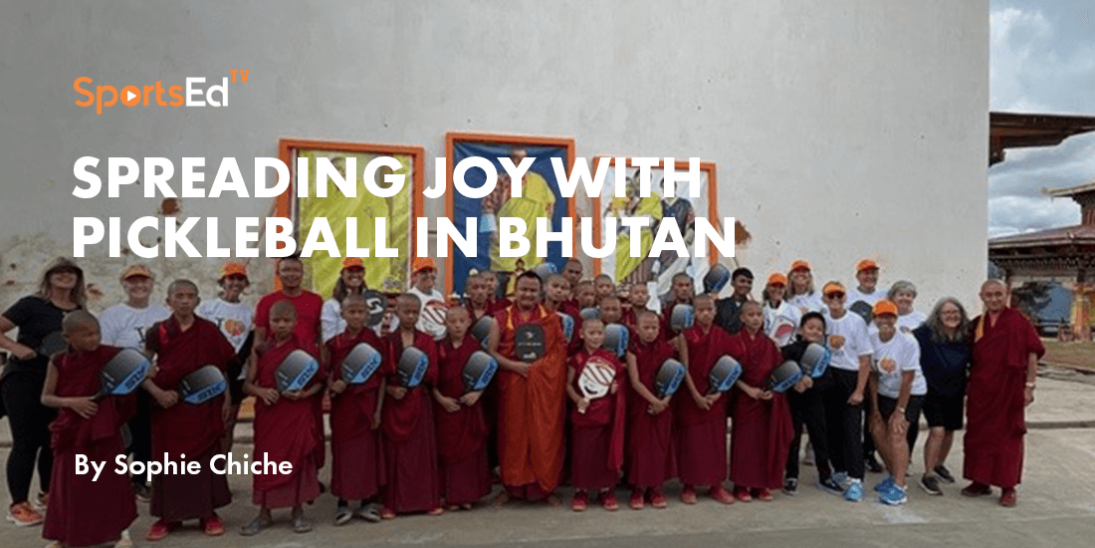
Soph: Let's start at the beginning. You went on a trip to Bhutan, and it involved pickleball. Tell me what this trip was about.
Bonnie: I was helping at a Dynamite Doubles Coaching Clinic with Helle Sparre. In the end, Dotti Berry asked if I would be interested in going to Bhutan as a volunteer coach for two weeks. She said, “You’d be a perfect fit for this outreach trip.” I said, “WOW! You don’t have to ask me twice. Yes, I’ll go!”
Soph: What is this project?
Bonnie: Kathleen Kiefer, the founder of a U.S. non-profit, Bhutan Cultural Exchange(BCE), has been working on special projects in Bhutan as a documentarian since 2016. BCE played a significant role in bringing baseball to Bhutan. Kathleen suggested to Dotti that pickleball would be a great activity for the monks of Bhutan. The idea of “Pickleball in Bhutan: One Monastery at a Time” was born. In November 2022, Kathleen began her search for monasteries that would be interested in building courts for the monks to play pickleball. To make a long story short, the word spread rapidly, and before she knew it, coaches and friends were asking to be a part of the development and sponsors of Pickleball In Bhutan.
Soph: So, why Bhutan?
Bonnie: Bhutan is a landlocked country about the size of Indiana and sits between Nepal, China, and India. Bhutan measures itself as the “Happiest Country in the World.” They call it the “Gross National Happiness Index” or the GNH. This term was conceptualized by the 4th King of Bhutan, and in 1972 it was declared as more important than the Gross Domestic Product(GDP). Through Bhutan’s proposal, even the United Nations has adopted Happiness” as a development indicator. On March 20th, International Happiness Day was celebrated. What better place to bring something that brings so much happiness to people than pickleball?!
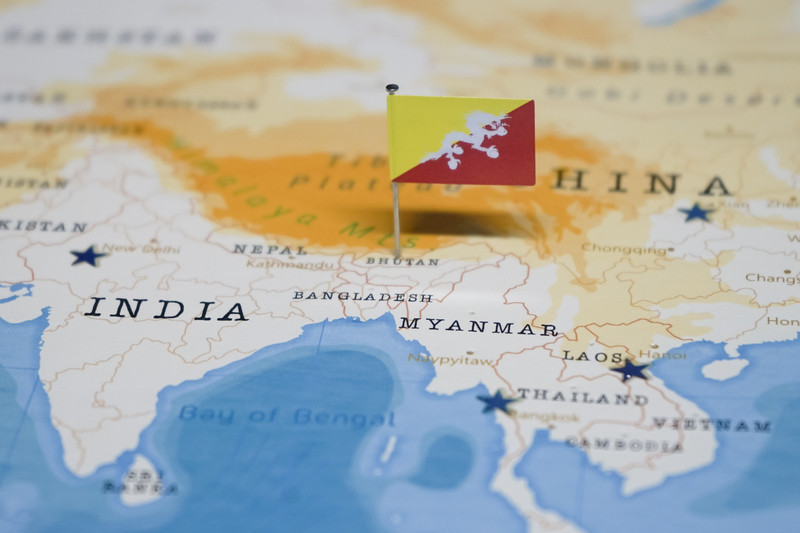
Soph: Were the students children or adults?
Bonnie: A combination. The first group of people we worked with were 35 college students who had come from the Royal Thimpu College. These new coaches were trained by Rif Rifkin of IPTPA and Helle Sparre in the Dynamite Doubles strategy. They not only had classroom training but were also on the courts with several of the certified coaches learning how to coach, how to play pickleball, and how to put it all together. These young coaches certainly have the ability to coach due to their intensive college curriculum and because so many of them are well-versed in table tennis and badminton.
We spent two days at a public school, Dechencholing Tiger Secondary School, and interfaced with approximately 1,000 students. One day, we had 500 children on three courts. It was crazy. If you could imagine all of these kids on the courts in their school uniforms, kiras for the girls and ghos for the boys just vibrating with excitement and joy to see a new sport that these crazy Americans were showing them! It was just mind-numbing to be a part of that.
That was on day one. That was all outside on three courts.
On day two, we saw approximately 500 children again. This was a little trickier because we couldn’t go outside for this session. So, if you can imagine the size of a basketball court separated into two levels, on the ground level, the temporary court and net were surrounded by rows of chairs and lots of little squirming kids. On the balcony, there were another 100 children watching as if it were Christmas morning, seeing something exciting under the tree.
We played a demonstration game, and then, with the help of the classroom teachers, the volunteer coaches organized children into groups of 16. We had four groups at a time facing each other, doing drills back and forth with the children. Each group of children participated for approximately 10-15 minutes, and then another group would be called onto the court.
I think if anybody from the outside would have seen this, they would have thought, “Oh my goodness! This is just chaos. These people don’t know what they’re doing.” Believe me, the children were attentive and excited to play. “. . .it’s my turn, it’s my turn. I want to go in. Show me how to do this…
Soph: Did you leave what they needed so they could continue playing? Is this a one-time thing, or will it happen again?
Bonnie: Remember the idea from the beginning? One Monastery at a time. . .? We traveled to a nunnery, which was amazing! There were approximately 30 nuns, ranging from age 3 to 16, all in maroon robes. Some of them barefooted, some in flip flops or Crocs. One of our volunteers and sponsors provided tennis shoes and socks for all of these girls. After each girl was presented with shoes/socks, we went outside and showed them how to hold a paddle and how to hit the ball back and forth. This nunnery is literally on a cliff overlooking the Paro Valley.
We then spent a very special day in the very high mountains at the Talakha Goemba Monastery. I had the pleasure of donating a pair of shoes and socks for each monk and the cook! After those shoes and socks were presented in a very humbling celebration ceremony, the boys, ranging in age from about 8 to 18, were given a paddle and ball, and play started. Gamma provided a portable net, and the volunteers helped with instruction.
If you can just imagine all of these boys running around with these maroon robes, shoes, or flip flops or barefooted, swinging their paddles and laughing out loud. I have never seen anything like it! This IS the Happiest Country in the World!!
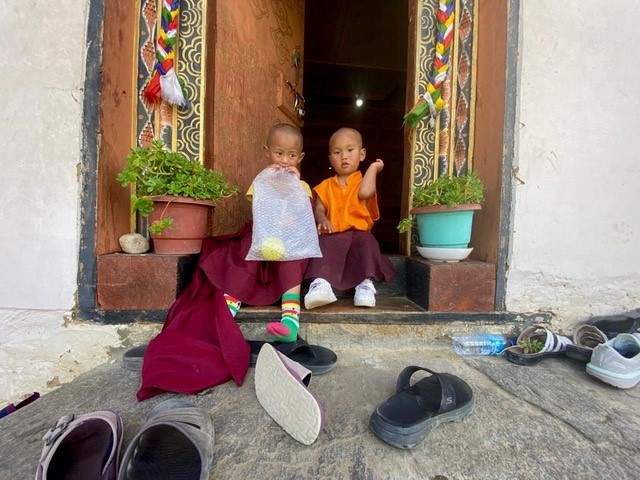
Soph: Did you have an intention? What were you hoping to accomplish?
Bonnie: I have been working on defining my purpose now that I am retired. I’ve always been known as a teacher, an educator, or a therapist. After I retired, that identity faded, and it has been important for me to find that new identity and purpose. This trip to Bhutan, as it turns out, is my purpose. To reach out, to be involved with a different culture, to be understanding and thoughtful. I think, above all, to be very loving and respectful of these incredibly kind and loving people of Bhutan.
Soph: That's really beautiful. Were you surprised by how they responded? Was it different than a bunch of kids here in the States?
Bonnie: The children are raised with the core values of respect and kindness. It was nothing that I’d ever experienced before. You just can’t imagine that 500 children would listen and follow directions. They bowed in respect, responded to questions, and were very polite and generous.
Soph: Can you speak to how it's changed you? Like, has it affected you in ways that surprised you?
Bonnie: This trip made me appreciate even more my gifts and talents in terms of being an educator, being a good listener, being compassionate, as well as being much more appreciative of what I have. When we went to the nunnery and the monasteries, it was very stark, and you could see the vow of simplicity played out before your eyes. To get a new pair of tennis shoes and socks was Christmas three times over!
I will be going back in February or March 2024 for an extended period of time to assist with the further development of the sport and the continued training of a Bhutanese coach. The Bhutan Pickleball Club has been formed. The Royal Bhutan College is putting together groups at the local elementary schools. They would like to host their first tournament in March on the three courts at the Woochu Sports Complex in Paro. These courts were built by generous sponsors and volunteers.
Soph: Anything you would like to add?
Bonnie: We had a multitude of donors and contributors. Without these folks, the trip would have been nearly as successful:
The Claude Blackburn Family, Kim Bastion and Kaitlyn Howard of Passport2Pickleball, LLC, Jaime Schmidt and Chris Cantino of Color Capital; Selkirk Sports, GearBox, Unix, Instadink, and Babolat. Volunteers who traveled are Nancy Hosford, founder of All In Youth Pickleball, Helle Sparre of Dynamite Doubles, and Rif Rifkind, founder of the International Pickleball Teaching Professional Association and the World Pickleball Federation. Volunteers who also coached included Cheryll Lovell and Nancy Clark from Colorado, Sally Bockisch, Kris Kaskawal and Audrey Campbell from Tucson, Melissa and John Ballenger from Washington, and Darla Christensen from Nevada. Dottie Berry was not able to join us but worked closely with Kathleen Kiefer on the dream and implementation of this effort.
The Bhutan contingent who supported us and paved the pathway for success is Kathleen Kiefer; Karma Jigme, President of the Paro FC; Pushpaal Tendril, Technical Director and Head Coach of the Paro FC; Tenzin Taki, Paro FC Team Manager; Tashi Gyeltshen, Principal of Dechencholing Higher Secondary School and Lama Kencho Tscherin, Head Monk of Talakha Goemba.
We have three trips planned for 2024. We will go back in March from the 17th to the 25th and focus on player development and tourism. This trip will include the largest festival in Bhutan. At the end of March through the first week of April, this trip will focus on more outreach into Bhutan to spread pickleball to more community leaders and the monastic bodies of Bhutan. The last trip to Bhutan will be in the September/October timeframe, continuing with outreach as well as taking advantage of the many cultural festivals and celebrations. It will all be magical at the foot of the Himalayas! Join us!
You can reach Bonnie Koch at akidzotr@gmail.com and put BHUTAN in the subject line.




